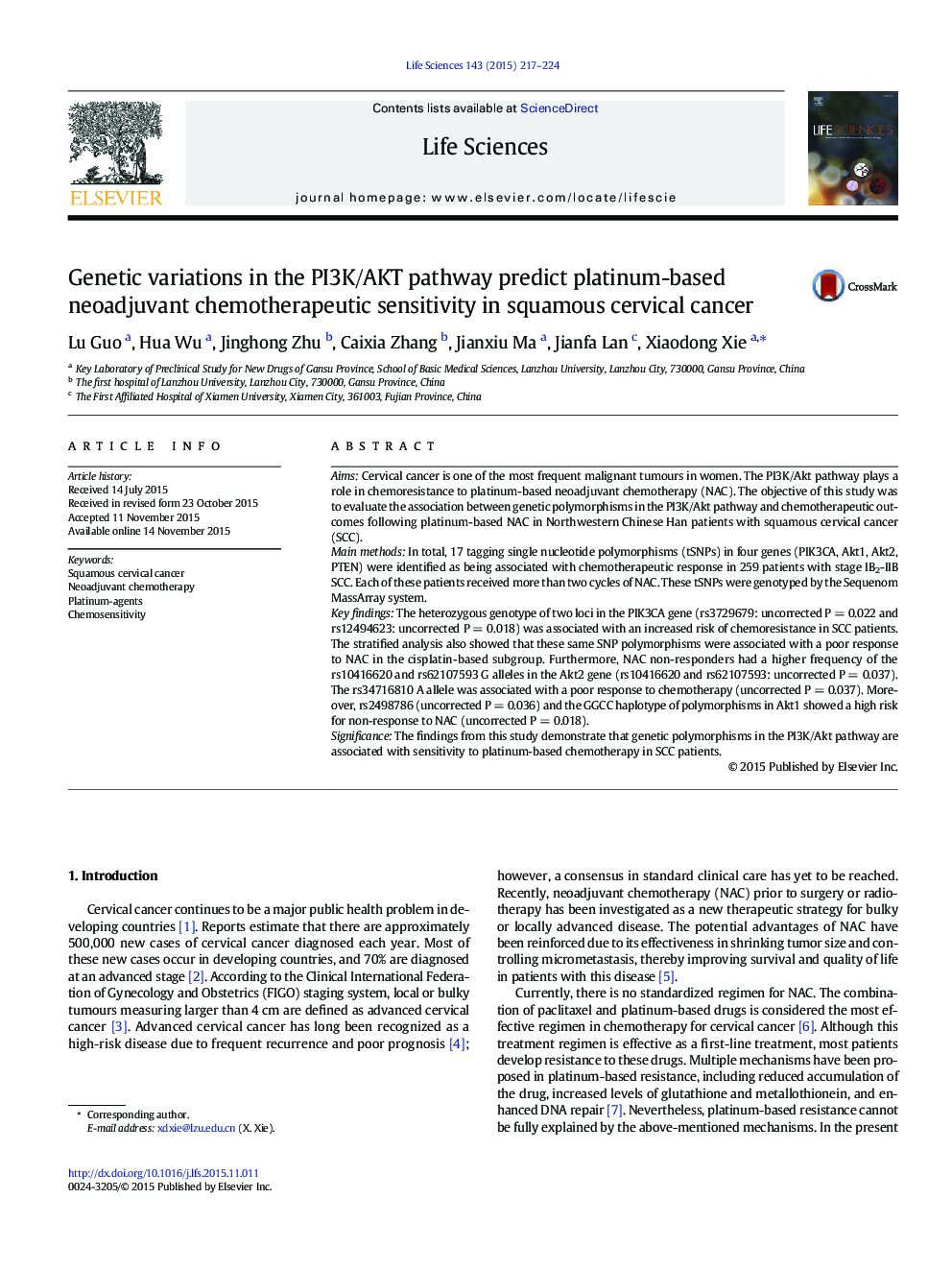| Article ID | Journal | Published Year | Pages | File Type |
|---|---|---|---|---|
| 2550716 | Life Sciences | 2015 | 8 Pages |
ABSTRACTAimsCervical cancer is one of the most frequent malignant tumours in women. The PI3K/Akt pathway plays a role in chemoresistance to platinum-based neoadjuvant chemotherapy (NAC). The objective of this study was to evaluate the association between genetic polymorphisms in the PI3K/Akt pathway and chemotherapeutic outcomes following platinum-based NAC in Northwestern Chinese Han patients with squamous cervical cancer (SCC).Main methodsIn total, 17 tagging single nucleotide polymorphisms (tSNPs) in four genes (PIK3CA, Akt1, Akt2, PTEN) were identified as being associated with chemotherapeutic response in 259 patients with stage IB2-IIB SCC. Each of these patients received more than two cycles of NAC. These tSNPs were genotyped by the Sequenom MassArray system.Key findingsThe heterozygous genotype of two loci in the PIK3CA gene (rs3729679: uncorrected P = 0.022 and rs12494623: uncorrected P = 0.018) was associated with an increased risk of chemoresistance in SCC patients. The stratified analysis also showed that these same SNP polymorphisms were associated with a poor response to NAC in the cisplatin-based subgroup. Furthermore, NAC non-responders had a higher frequency of the rs10416620 and rs62107593 G alleles in the Akt2 gene (rs10416620 and rs62107593: uncorrected P = 0.037). The rs34716810 A allele was associated with a poor response to chemotherapy (uncorrected P = 0.037). Moreover, rs2498786 (uncorrected P = 0.036) and the GGCC haplotype of polymorphisms in Akt1 showed a high risk for non-response to NAC (uncorrected P = 0.018).SignificanceThe findings from this study demonstrate that genetic polymorphisms in the PI3K/Akt pathway are associated with sensitivity to platinum-based chemotherapy in SCC patients.
